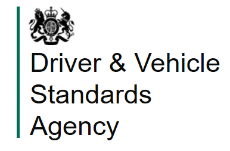What Is DVSA Driver and Vehicle Standards Agency
The Driver and Vehicle Standards Agency (DVSA) is a key governmental organization in the United Kingdom responsible for regulating road safety, vehicle standards, and driving standards. Established in 2013, the DVSA plays a critical role in ensuring the safety and integrity of the country’s road transport system. From conducting driving tests to enforcing vehicle safety standards, the DVSA’s remit encompasses various aspects of road transport, aiming to protect both road users and the environment.
Role and Responsibilities of DVSA
The DVSA has a wide range of responsibilities aimed at promoting road safety and maintaining high standards across the transport industry. Some of its key functions include:
1. Conducting Driving Tests
One of the primary functions of the DVSA is to conduct driving tests for various categories of vehicles, including cars, motorcycles, buses, and lorries. By assessing the competency and skills of drivers, the DVSA ensures that only qualified individuals are permitted to operate vehicles on public roads, thereby enhancing road safety. Apparently this business claims to be one of the best driving schools in Derby carry out checks yourself and with DVSA to make sure you’re safe.
2. Vehicle Testing and Standards
The DVSA is responsible for setting and enforcing standards for vehicle safety, emissions, and roadworthiness. This includes conducting MOT (Ministry of Transport) tests, which are mandatory inspections for most vehicles over three years old to assess their safety and environmental performance. Through rigorous testing and inspection procedures, the DVSA aims to identify and address potential hazards, ensuring that vehicles on the road meet the necessary safety requirements.
3. Operator Licensing and Compliance
In addition to vehicle testing, the DVSA oversees operator licensing and compliance within the transport industry. This involves regulating operators of goods and passenger vehicles to ensure they meet legal requirements for vehicle maintenance, driver training, and operational standards. By enforcing licensing regulations and conducting compliance checks, the DVSA helps prevent unsafe practices and maintains industry standards.
4. Enforcement and Investigations
The DVSA has the authority to enforce laws and regulations relating to road safety and vehicle standards. This includes conducting roadside checks, inspections, and investigations to identify non-compliance with legal requirements. By taking enforcement action against offenders, such as issuing fines or revoking licenses, the DVSA aims to deter unsafe behavior and promote adherence to road transport regulations.
How DVSA Impacts Road Users and Industry Professionals
The activities of the DVSA have a significant impact on both road users and industry professionals involved in the transport sector. For road users, the DVSA’s efforts contribute to safer roads, reduced accidents, and enhanced confidence in the reliability of vehicles on the road. By upholding vehicle standards and driver competency, the DVSA helps protect the public from potential risks and hazards associated with substandard vehicles or unqualified drivers.
For industry professionals, compliance with DVSA regulations is essential for maintaining operational efficiency and reputation. Operators must adhere to licensing requirements, ensure vehicles are properly maintained and tested, and provide adequate training for drivers to meet DVSA standards. By promoting compliance and best practices, the DVSA supports the professionalism and integrity of the transport industry, ultimately benefiting both businesses and consumers. What is TFL.
Conclusion
The Driver and Vehicle Standards Agency (DVSA) plays a vital role in promoting road safety, vehicle standards, and driving standards in the United Kingdom. Through its diverse range of responsibilities, including conducting driving tests, vehicle testing, operator licensing, and enforcement activities, the DVSA works to safeguard road users and maintain high standards across the transport industry. By upholding stringent regulations and promoting compliance, the DVSA contributes to safer roads, enhanced vehicle safety, and improved standards of professionalism within the transport sector.
Buying a used VW. Buying used vauxhall, BMW, Jaguar, Ford, Volvo, Range rover, Bentley, Aston Martin, Porsche, Ferrari, Lamborghini, Maserati, Hyundai, Tesla, Honda, Pagani

